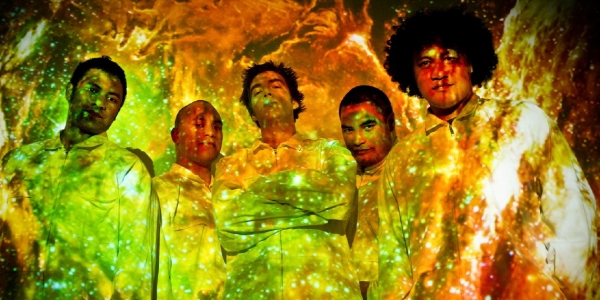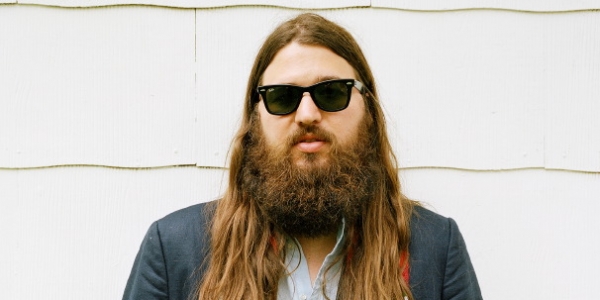Kora’s second LP Light Years came out late last year and showcased a number of new stylistic tenets for the band, most notably delving into heavier electronic territory than on their self-titled debut. McGruer explains that the band constantly seek to expand their songwriting approach while maintaining a unique substance.
“We try stuff out and it depends how we feel at the time. Light Years was recorded probably a year ago now, so it was a reflection of that time. But I think we tried to write a timeless album as well, so it will stand up in ten years’ time and people will still find something good from it.”
Kora is comprised of McGruer and the four Kora-family brothers, Laughton, Stuart, Francis and Brad. The band began in Queenstown in southern New Zealand and the Koras are originally from Whakatane on the north-east coast, however, three-fifths of the band have recently been lured into city living. McGruer admits that moving to Auckland from the subdued countryside has been a big shift but he’s embracing the change of scenery.
“The move to Auckland was a whole different vibe. I’ve lived in the country and I like the open mountains and stuff. To live in the city is a whole other vibe, but I enjoy it.”
McGruer’s home in Auckland doubles as Kora HQ and includes a makeshift recording studio where Light Years was recorded.
“I’ve got a unit apartment and one of the rooms we’ve got set up as the control room and we use the rest of the house and make it our own studio. That’s where we do all the recordings and the mix-downs and everything like that,” says McGruer.
The fact that Kora includes four brothers could lead to power struggles, which would inevitably impact upon the band’s creative dynamic. However, McGruer explains that they’re fairly reasonable when it comes writing music.
“We’ve always done okay because we try to compromise with each other and learn from each other and take on board what the other members are saying. We often write music for each other, so I would try to write music I know the other boys would appreciate and vice versa.”
McGruer indicates that upholding a five-way internal consensus certainly has its benefits because it pushes the individuals to conceive ideas that stand out. “It’s kind of a mix-mash of ideas but the more you write the more chance that your song’s going to be enjoyed a bit more. If the boys put more time into their songs it usually gets played and we end up turning it into a song,” he says.
A song can preserve an emotion and returning to a song gives one the opportunity to re-visit that particularly feeling. However, given that a song can develop over a series of days or weeks, the songwriter might need to reconnect with the driving emotional state in various settings.
“When writing a song, it’s trying to capture how you’re feeling then. The way I do it, I try to think, ‘How do I feel right now?’ and write from there. Usually the song recording and writing process goes for a couple of days for me anyway, so quite often I change the frame of mind I was in. I’ve got to be conscious of trying to capture that moment I was in yesterday as well,” explains McGruer.
McGruer admits that it can be difficult to re-connect with the exact feeling that instigated a song, but he reasons that you shouldn’t be too determined by one feeling or idea as that can be limiting. “Sometimes the more you work on it the better it gets and evolves into something different which is better. You’ve just got to experiment with stuff really,” he says calmly.
Kora have been making music together for over ten years and McGruer suggests that the years spent working together have allowed them to developed a rapid understanding of each other’s intentions in the creative environment.
“We all have different styles but we kind of all have the same style as well. There is five people and we all put our songwriting flavours into it. We just put pressure on ourselves to write good songs.”
Mountains of influences converge in Kora’s recorded output so it’s almost surprising to hear there are ideas that would be excluded from being in a Kora song. However, McGruer alludes to the boundaries demarcating what’s considered appropriately Kora.
“If I like a song I can tell if it might not be suitable for Kora, but I would use it in a side project or something like that, because I think it sounds good but it’s not quite Kora’s flavour. It’s taken a few years to find that ground where we know what is Kora because we’ve been so experimental and we’ve been trying stuff out for so long. In the last couple of years we’ve been accepting who we are and accepting that we’re eclectic and we’ve got all these different sounds.”
BY AUGUSTUS WELBY

